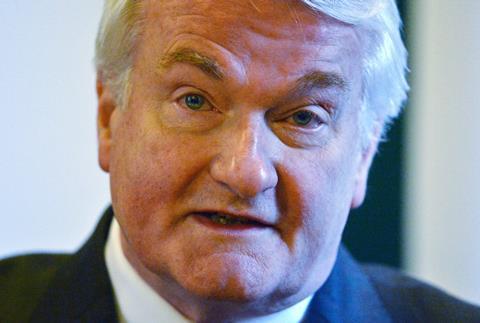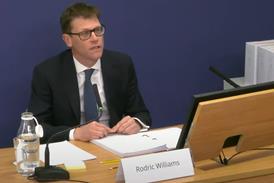The lord chief justice has said that ministers should consider limiting the availability of jury trials if court delays become unmanageable.
Lord Burnett of Maldon expected no change to the way that serious charges — such as rape and murder — were tried in England and Wales. The least serious offences would continue to be decided by magistrates.
But between those extremes were cases — such as assault, theft and burglary — that could be tried either by magistrates or by a judge and jury. At present, a defendant charged with one of these so-called ‘either-way’ offences can insist on jury trial.
Lord Burnett told the BBC Radio 4 programme Law in Action: ‘A possibility that I believe is worthy of consideration by policymakers is to legislate to enable, for a short time, the disposal of either-way trials in the Crown court by a judge sitting with two magistrates.

‘That would retain the lay public involvement in trials, but give rise to none of the difficulties of social distancing that attach to having a jury involved in a trial.’
Lord Burnett has previously said that trials of serious cases without any form of public involvement should be a last resort: public confidence and public engagement were important reasons for retaining jury trials.
The lord chief justice was less enthusiastic about the idea of allowing juries to take part in hearings from a single remote location. Jury members would gather in a large room from which they could watch the proceedings on a video link and in which they could deliberate once they had heard the evidence.
The idea was tested by the law reform group Justice last Friday and is also to be piloted in Edinburgh.
‘That is something which has been discussed in London, but so far, it hasn’t secured a great deal of enthusiastic support,’ Lord Burnett said. ‘Not least because it seemed to make the jury spectators rather than participants in a trial; and judges and lawyers are undoubtedly concerned, as I don’t doubt they’re concerned in Scotland too, about a lack of engagement between the jury and the advocates; and the jury and the judge; and the jury and the defendant and witnesses.’
Another way of meeting the need for social distancing would be to reduce the number of people serving on a jury, Lord Burnett told Law in Action.
The lord chief justice recalled that juries were reduced from 12 to seven members during the Second World War, except in murder and treason trials.
Lord Burnett said the measures needed would depend on whether the two-metre rule was relaxed and how long social distancing remained in force.
Many courtrooms are too small to accommodate 12 jurors sitting two metres apart, although it has been possible to resume some jury trials by moving press and public into a second courtroom, where they can watch the proceedings on a video link. A third courtroom is used for socially distanced deliberations.
If emergency restrictions were needed for the remainder of this year, then the government and parliament would have a choice between conducting trials in a way that would not ordinarily be thought appropriate and putting them off for very long periods — which the lord chief justice said would be highly undesirable.
Law in Action is broadcast at 4pm today on BBC Radio 4 and can then be heard on BBC Sounds

















![David Lester (senior partner at Blythe Liggins), Darryl Barnes, Jagdeep Sandher (head of dispute resolution at Blythe Liggins)[4]](https://d1d8vslyhr7rdg.cloudfront.net/Pictures/274x183/4/2/8/116428_davidlesterseniorpartneratblytheligginsdarrylbarnesjagdeepsandherheadofdisputeresolutionatblytheliggins4_981603_crop.jpg)






19 Readers' comments